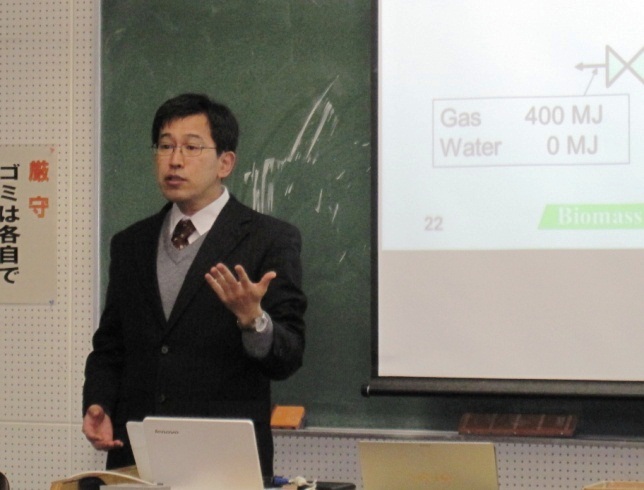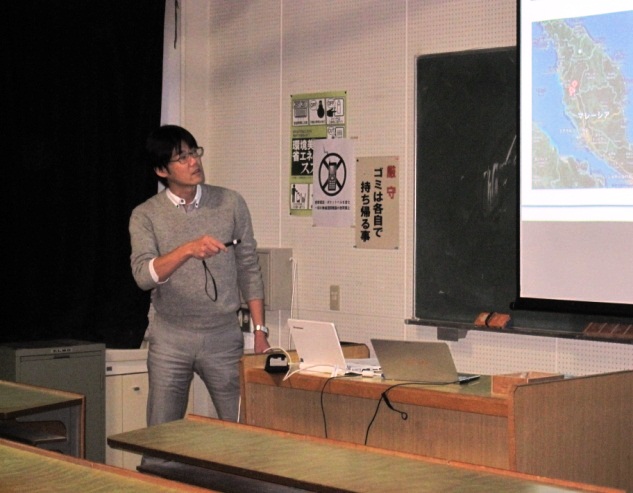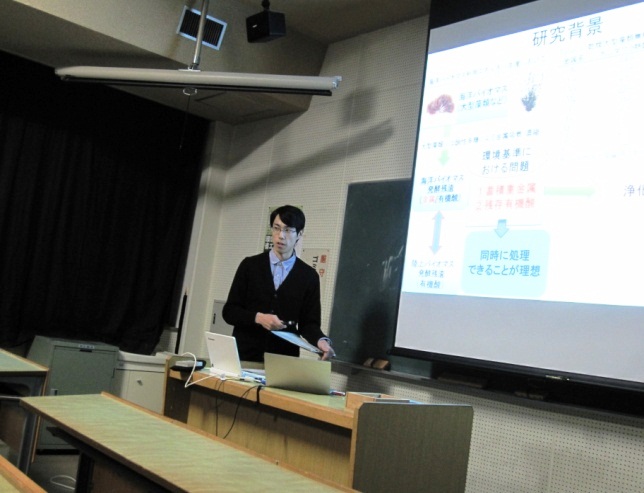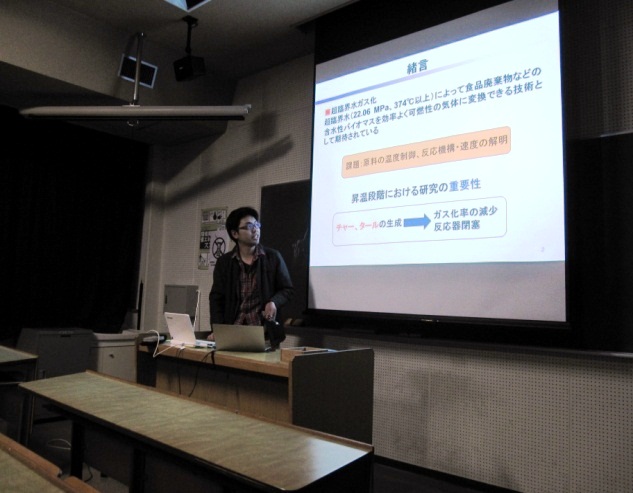On Nov 20, 2013, the 14th Biomass Evening Seminar was held at Graduate School of Engineering, Hiroshima University.
Biomass Project Research Center, Hiroshima University, and HOSTY Association are co-organizing the Hiroshima University Biomass Evening Seminar. This seminar covers topics from the fundamentals of biomass to the latest information so that it can contribute the activities on biomass in this district.
- Date & Time:
Wed., Nov.20, 2013 16:20 - 17:50 - Place:
Engineering 110 Lecture Room, Higashi-Hiroshima Campus, Hiroshima University
[Program]
- Commentary:
Yukihiko MATSUMURA
Professor, Institute of Engineering, Hiroshima University
- Chair:
Machi KANNA
Assistant Professor, Institute of Engineering, Hiroshima University
- Lecture:
Takashi YANAGIDA
Assistant Professor(Specia Appointment), Institute of Engineering, Hiroshima University
"Biodiesel production potential from rubber seed oil"
|
Nowadays much attention has been paid to biodiesel, which is an alternative for petroleum based fuel, but the use of food resource for the feedstock is problematic. One of the possible solutions to reduce the utilization of the edible oil for biodiesel production is to use non-edible oils. Rubber seeds, which are by-product of tree for natural rubber production, are consists abundant oil. At present the rubber seeds oil (RSO) does not find any major applications, and categorized in non-edible type. Estimation of the potential of biodiesel using RSO is significant. In this seminar, I would like to introduce the estimation of the biodiesel production potential from rubber seed in natural rubber producer countries, based on experimental data. |
 |
- Lecture:
Tadaaki MATSUO
M1 Student, Graduate School of Sciences of Matter, Hiroshima University
"Enrichment and characterization of heavy metal resistant marine photosynthetic bacteria"
|
Marine macroalgae, especially brown algae, absorb metal ions by alginic acid and sulfated polysaccharides. The biomass of brown algae is available in large quantities as renewable biological resources; however the abundant metals accumulate in marine biomass residues. To achieve metal recovery and seawater recycling, we focused on the ability of photosynthetic bacteria to tolerate heavy metals. Marine photosynthetic bacteria were enriched with heavy metals and successfully obtained the bacterial communities harboring high-level resistance to a wide variety of heavy metal ions. Moreover, ten times equivalent of heavy metal ions that accumulated in kelp were recovered in harvested cells. |
 |
- Lecture:
Hiroyuki HIRATA
M2 Student, Graduate School of Engineering, Hiroshima University
"Measurement of heat of reaction for glucose decomposition in subcritical water"
|
In subcritical water region, char is produced, causing reactor plugging and decreasing carbon gasification efficiency. However, measurement of heat of reaction has not been conducted under hydrothermal condition. The purpose of this study is to measure the heat of chemical reaction under hydrothermal condition with residence time and change of glucose concentration. The tendency of increase of the heat of reaction is different due to the difference in concentration from experimental results was found. |
 |
[Inquiries about this article]
Graduate School of Engineering, Hiroshima University
Y.NAKASHIMA
Mail: y4naka [AT] hiroshima-u.ac.jp
(Please replace [AT] with @)


 Home
Home
